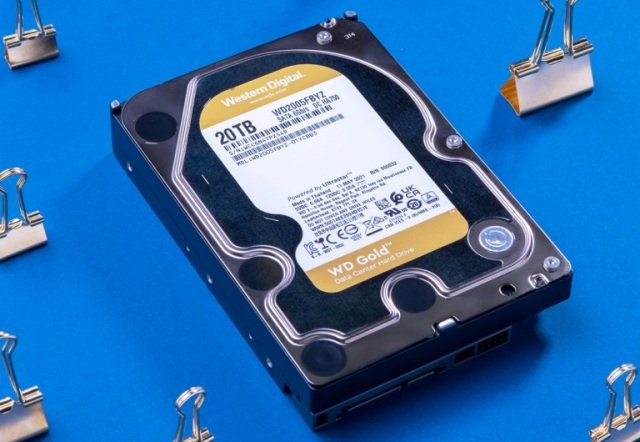Western Digital, a leading memory chip firm, has reported 36 percent drop in revenue to $2.80 billion in its third-quarter from $4,381 million.
 Cloud segment revenue of Western Digital in the third quarter fell 32 percent to $1.21 billion. Client revenue of Western Digital dipped 44 percent to $975 million. Consumer revenue of Western Digital dropped 29 percent to $623 million.
Cloud segment revenue of Western Digital in the third quarter fell 32 percent to $1.21 billion. Client revenue of Western Digital dipped 44 percent to $975 million. Consumer revenue of Western Digital dropped 29 percent to $623 million.
Cloud represented 43 percent of total revenue of Western Digital. The decline in sales was primarily due to a decline in shipments of both hard drive and flash products, as well as price decreases in Flash.
Client represented 35 percent of total revenue of Western Digital. The drop in sales was driven by price declines across our flash products and a lower client SSD and hard drive shipments for PC applications.
Consumer represented 22 percent of total revenue of Western Digital. The decrease in sales was driven by lower retail hard drive shipments and price declines in Flash.
“Our team has focused on enhancing business agility and delivering innovative, industry-leading products that address the data storage demands,” said David Goeckeler, Western Digital CEO, in its earnings report.
“The groundwork we laid, combined with the actions we have taken since the beginning of this fiscal year to right-size and refocus our businesses, have enabled us to navigate a dynamic environment.”
Gross margin of Western Digital decreased to 10.2 percent from 27 percent.
Western Digital reported net loss of $572 million vs net income of $25 million.
Western Digital forecast fourth-quarter revenue of $2.4-$2.6 billion and a bigger current-quarter loss, signaling that memory chip demand will take longer to recover as cloud spending also shrinks.
Chipmakers across the board including Intel have said cloud spending is weakening.
Seagate Technology, which makes hard disks for storage like Western Digital, said it was seeing a more elongated customer inventory correction and that it expects demand recovery to begin only towards the end of 2023.
The memory industry was slammed by falling chip prices due to the combined impact of falling demand for electronics and oversupply.
Memory chipmakers have been cutting production to alleviate oversupply and prop up memory chip pricing.
Western Digital, which is exploring the splitting of its flash-memory and hard-drive business after activist investor Elliott Management pushed for a separation, said revenue from those units in the third quarter fell about 42 percent and 30 percent, respectively, from a year earlier.
